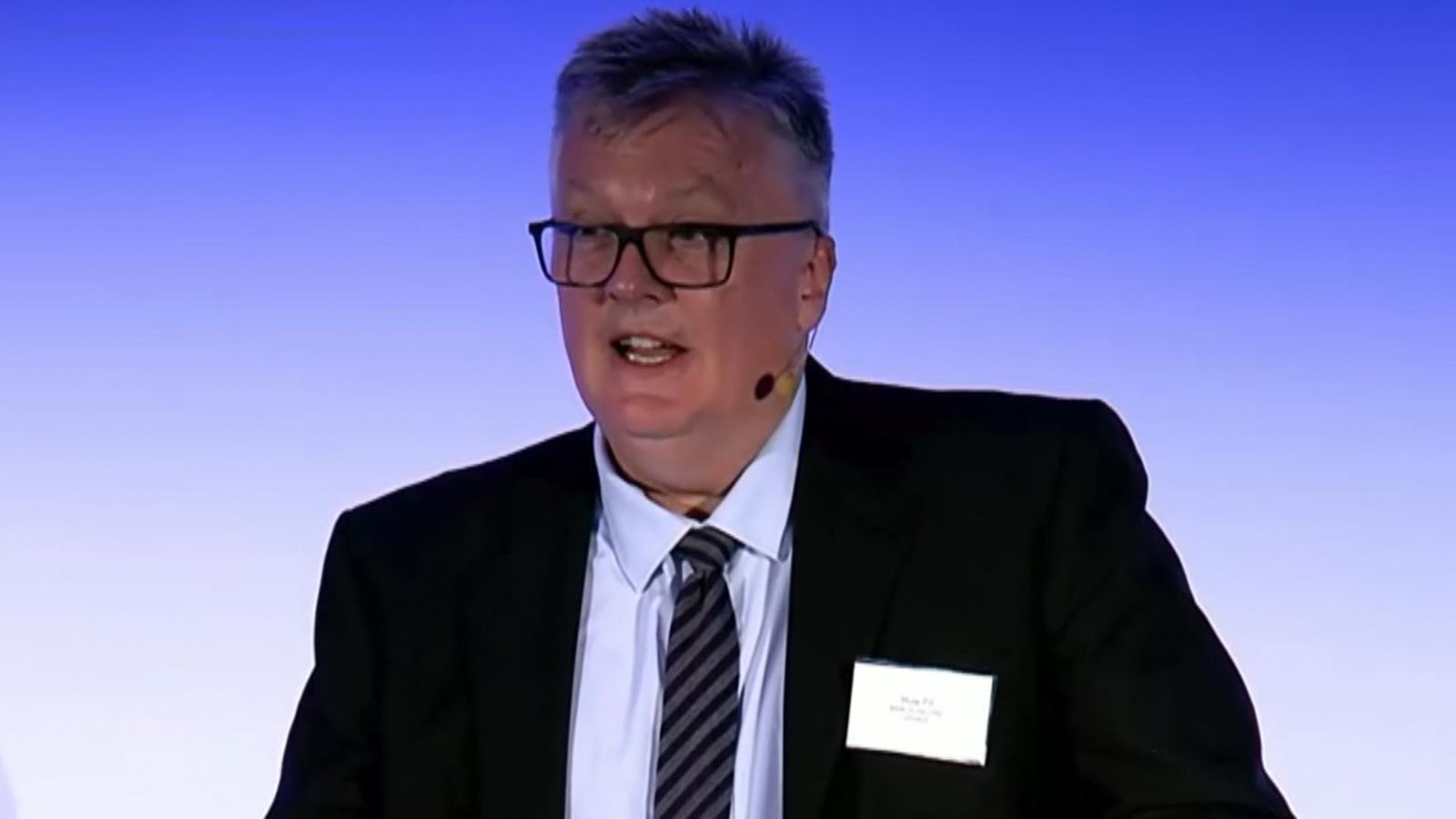Bank of England’s chief economist Huw Pill issues warning over interest rate rises

The Bank of England’s chief economist has warned there is a risk of “unnecessary damage” being inflicted if interest rates increase too much.
Huw Pill told a conference in South Africa he was wary about the impact on “employment and growth” resulting from potential future hikes in the battle to bring down inflation.
It comes after the Bank upped interest rates for a 14th time in a row to 5.25% earlier this month and said it expected them to remain at high levels for longer than previously expected.
Mr Pill, who is a member of the Bank’s Monetary Policy Committee (MPC) which sets the rates, told an event in Cape Town that it was vital to ensure a “lasting return” to the Bank’s inflation target of 2%.
The consumer price index (CPI) measure of inflation fell to 6.8% in the year to July, down from a peak of 11.1% last October.
But the Bank remains concerned that core inflation, which does not track items susceptible to sharp rises and falls, such as food and energy, remains “stubbornly high” at 6.9%.
Mr Pill said: “The key element is that we on the MPC need to see the job through and ensure a lasting and sustainable return of inflation to the 2% target.”
But he added the Bank had to be careful with interest rate rises, saying: “Now that policy is in restrictive territory, there is the possibility of doing too much and inflicting unnecessary damage on employment and growth.”
However, he went on to stress tackling inflation is still the key job at hand for now.
Advertisement
“At present, the emphasis is still on ensuring that we are – in the words of the MPC’s last statement – sufficiently restrictive for sufficiently long to ensure that we have that lasting return to target,” Mr Pill said.
Read more from business:
Hundreds of job losses at Wilko confirmed
Electric models powering UK car production recovery
M&S returns to FTSE 100
The Bank of England has forecast that inflation will fall to around 4.9% in the last three months of the year.
It has come under pressure to continue raising interest rates to drag inflation down.
But concerns have also been raised about the impact of hikes on mortgage rates, which have been blamed for a slowdown in the housing market, and on other aspects of the economy.
The Institute for Public Policy Research thinktank recently warned there was a “very real risk” the UK could fall into a recession while rates remain high.
Mr Pill faced criticism earlier this year when he said the public needed to “accept” that they were poorer. He later expressed regret over his comments.